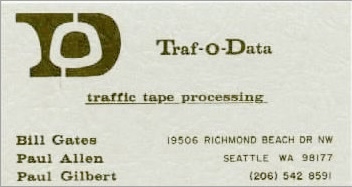The Importance of Public Traffic Data
Today a number of folks are talking about the importance of public transit data as Apple tries to shift from Google’s historic integration of public transit data in its maps product to a new world where each individual transit provider would create an iOS app that would then be linked to from within its mapping application. (And please do read Clay Johnson’s passionate argument about the importance of preserving open transit data.)
In the immediate term, Apple’s solution is problematic, because it puts the burden on public transit systems (which are supposed to serve all) to create proprietary apps to serve a certain, privileged part of their ridership. Google’s implementation was certainly problematic as well, but closer to the ideal where public (or semi-public) transit providers make their data available in open formats with published specifications, so that all can benefit from them.
There’s a red herring argument that Apple’s model somehow encourages more competition between information providers; In actuality, open data formats for transit mapping information would provide the most competition and benefit users the most in the long term.

We also lack perspective about how critically important this type of transit and traffic data is to technological entrepreneurship. While the providers of this data can range from completely government-sponsored public providers to completely private entrepreneurs, it’s inarguable that innovation around traffic and transit data is one of the most important ways to attract great talent to tech.
Bill Gates and Paul Allen’s first collaboration was a startup called Traf-O-Data, which recorded and analyzed traffic at intersections in their hometown using custom-built devices along with some smart software. Jack Dorsey’s first successful application was a platform for dispatch routing, designed to optimize the flow of cars by optimizing the flow of information.
It’s easy to see these debates as being about esoteric “open data” battles with governments and big corporations. But it matters because the work we do to build our cities directly drives the work we do to build our communities online.